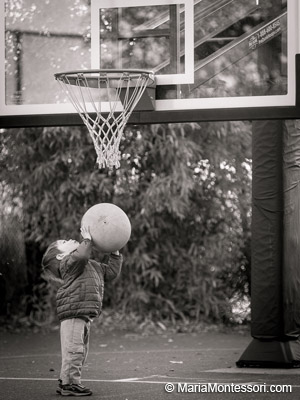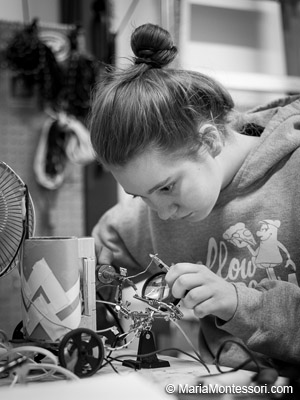

October 27, 2022
I began my research by asking my son, “What inspires you to keep working, even when the work is difficult?” His quick reply was, “I keep working by choosing the most challenging thing I’ve had a lesson on. Then it’s interesting to figure out.” I pressed, “But what if you encounter a problem you cannot solve or have trouble finding a solution even with a lot of effort?” He answered, “Then I find a friend and ask them for advice or see if they have a good idea.”
When we believe we can do hard things and have faith in our abilities and the support around us when we know we can handle failure, then fear and insecurity are kept in check. An amazing thing happens: We relish taking on new challenges.
Why does this feel so good? The answer lies in the components of intrinsic motivation: choice, challenge, curiosity, and collaboration. The choice is the key so that the goal is personally meaningful and we feel a sense of autonomy in pursuing the task. We are motivated by challenge when attaining the goal is possible but not necessarily certain—which presents the challenge—and we are able to register feedback about our progress. Curiosity breeds motivation when something grabs the individual’s attention and stimulates the person to want to learn more. Collaboration motivates us with its inherent satisfaction of helping others or contributing to a team. When these elements are in play, we feel a sense of motivation to take on the challenge, and the work becomes an interesting journey rather than a chore.
We can all relate to the joy we feel when we master a new task. The joy is often directly related to the amount of effort required to gain the new skill. Children are uniquely driven to seek out challenges. Whether it’s a one-year-old who wants to repeatedly climb a staircase or an older child interested in creatively exploring the largest math problem they can imagine, human curiosity leads toward a challenge. In the classrooms, the Guide and the environment are geared toward presenting and managing new challenges. It may be that a child needs help breaking down a large math problem into a series of manageable steps. At home, a parent may help a child understand how to approach a general task such as cleaning one’s room, which really involves many small steps, by similarly dividing the larger job into smaller steps, “Let’s start by picking up all the books.” It takes time, but at the end of each challenge, there is the reward of “I did this. I made this happen.”
Unnecessary rewards undermine our attraction to challenging tasks and carry hidden costs. They do work, in the short term. However, unless we are prepared to follow our children through life offering incentives, then we are really working against supporting the development of the adult we hope they will become. It also sends the message that the child, on his or her own, is not able or willing to take on the challenge. In place of rewards, we can embrace collaboration with our children. Instead of “When you memorize your math facts, we will get pizza,” we can be more direct and more respectful, “The math facts need to be memorized, how shall we work together to make this happen over the next two weeks?” and stay firm in setting the goal while offering some choice about how to get there. At the end of the work, there can be space for reflection and celebration of a job well done. That proud moment when we know ‘I did this hard thing’ feeds the appetite and confidence for the next moment of challenge.